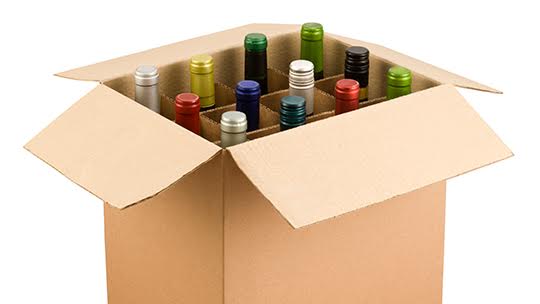
Millennials, mobile phone apps, and beverage alcohol’s online availability are fueling remarkable industry retail e-commerce growth. Companies like Drizly, Wine.com, and Instacart are leading the charge and expanding with the market. “As adoption and consumer awareness of alcohol e-commerce rapidly catches up to many other categories, such as grocery, the opportunity for more exponential growth is only accelerating,” says Drizly CEO Cory Rellas. “Fifty-five percent of consumers aren’t aware it’s legal to shop for beverage alcohol online. In addition, 99% of consumers still shop for alcohol at the liquor store or grocery store today, as it’s a known and trusted behavior built over decades. Drizly’s challenge, and therefore opportunity, is to make consumers aware that shopping for beverage alcohol online is legal.”
Wine.com purchases made via mobile devices grew 27% in 2019 and accounted for 33% of the company’s revenue last year. The majority of Wine.com’s mobile device revenue came from the Wine.com app, which grew over 60%. “App users tend to also be very loyal, as it gives them convenient access to the world’s largest wine store and our live chat Somm service, plus it lets them choose one of our 14,000 pickup sites,” says CEO Rich Bergsund.
Since the launch of beverage alcohol delivery in eight additional states and significant new retail partnerships in March 2019, Instacart, an online grocery delivery company, expanded its beverage alcohol delivery to reach nearly 60 million households. Instacart’s retail partners have seen their average basket size increase an estimated 15% with the introduction of beverage alcohol delivery. The number of alcohol deliveries powered by Instacart is up triple digits year-over-year and the company plans to continue expanding its platform. And although limited, Amazon is also involved in online beverage alcohol sales through its Prime Now and Amazon Fresh services, as well as through its Whole Foods Market stores.

More Technology
Online beverage alcohol sales over the next five years are poised to increase dramatically from their current estimated industry share of 2%-3%. “To put numbers against it, Drizly believes 8% of all off-premise beverage alcohol—roughly $12 billion—will be sold online by 2025,” Rellas says. “More technology has entered the beverage alcohol space in the last three years than the previous 30. We believe this is just the beginning.”
Founded with three employees in 2012, Drizly now employs 120 people and expects to increase its staff by 33% in 2020. Drizly also plans to double the size of its retailer network in 2020, adding 2,000 new retailer partners to its platform in 22 states, and Washington, D.C. “Our focus on providing not just incremental consumers and profit to their businesses, but also software and data to help them run a more profitable retail operation has been fundamental to our leadership position,” Rellas says. Mobile phone apps account for 70% of Drizly’s sales, desktop computers for 29%, and tablets for 1%, according to Rellas.
Founded as Virtual Vineyards in 1998, Wine.com recently surpassed $1 billion in total online wine sales. In 2019, Wine.com’s revenue increased 16% from 2018 to $150 million, for the company’s largest year-over-year gain. “Three business segments contributed the most to this growth—members, mobile, and millennials,” Bergsund explains. “Young consumers made up 33% of our customer base by quantity, and revenue from this group grew 36%.”

Loyal Customers
Wine.com’s membership business, StewardShip, grew 24% and accounted for 51% of total revenue in 2019. StewardShip includes unlimited shipping and exclusive offers for $49 a year. “This is our most loyal customer segment, with the highest lifetime customer value, and it became the majority of our revenue for the first time this year,” Bergsund says.
Wine.com launched online spirits sales in New York, Florida, and New Jersey last year, and spirits sales in California are expected to launch this quarter, with other states possibly being added depending on regulations. Spirits comprised less than 1% of Wine.com’s 2019 revenue, but are now trending at 6% of revenue in those states. “It will take some time for people to associate Wine.com with spirits, but we expect spirits to gain share of our business,” Bergsund says.
Bergsund anticipates online retail sales of beverage alcohol to grow to 10%-15% of the market, as seen in other industries. “While regulatory shipping constraints have made online penetration take longer in alcoholic beverages, the consumer benefits around selection, guidance, and convenience are just too compelling,” Bergsund says. “This will be especially true for younger consumers, who are already used to buying everything online and on their mobile devices.”

Virtual Storefronts
Utilizing an online platform of virtual storefronts for grocery shopping and delivery, Instacart began a focused effort on beverage alcohol growth in 2018, expanding to new states and partners where local regulations permit. Since March 2019, Instacart began delivering beverage alcohol in eight more states; the company now delivers across 22 states and Washington, D.C.
Also last March, Instacart announced partnerships with more than 30 new retail partners, including Aldi, BJ’s, Costco, Sam’s Club, Sprouts, and The Fresh Market, to deliver beverage alcohol. The company’s platform also includes major beverage alcohol retailers such as BevMo, Binny’s, and Total Wine & More. Additionally, Instacart is now rolling out enhancements, including options to sort products by style, price, brand, abv, and tasting notes.